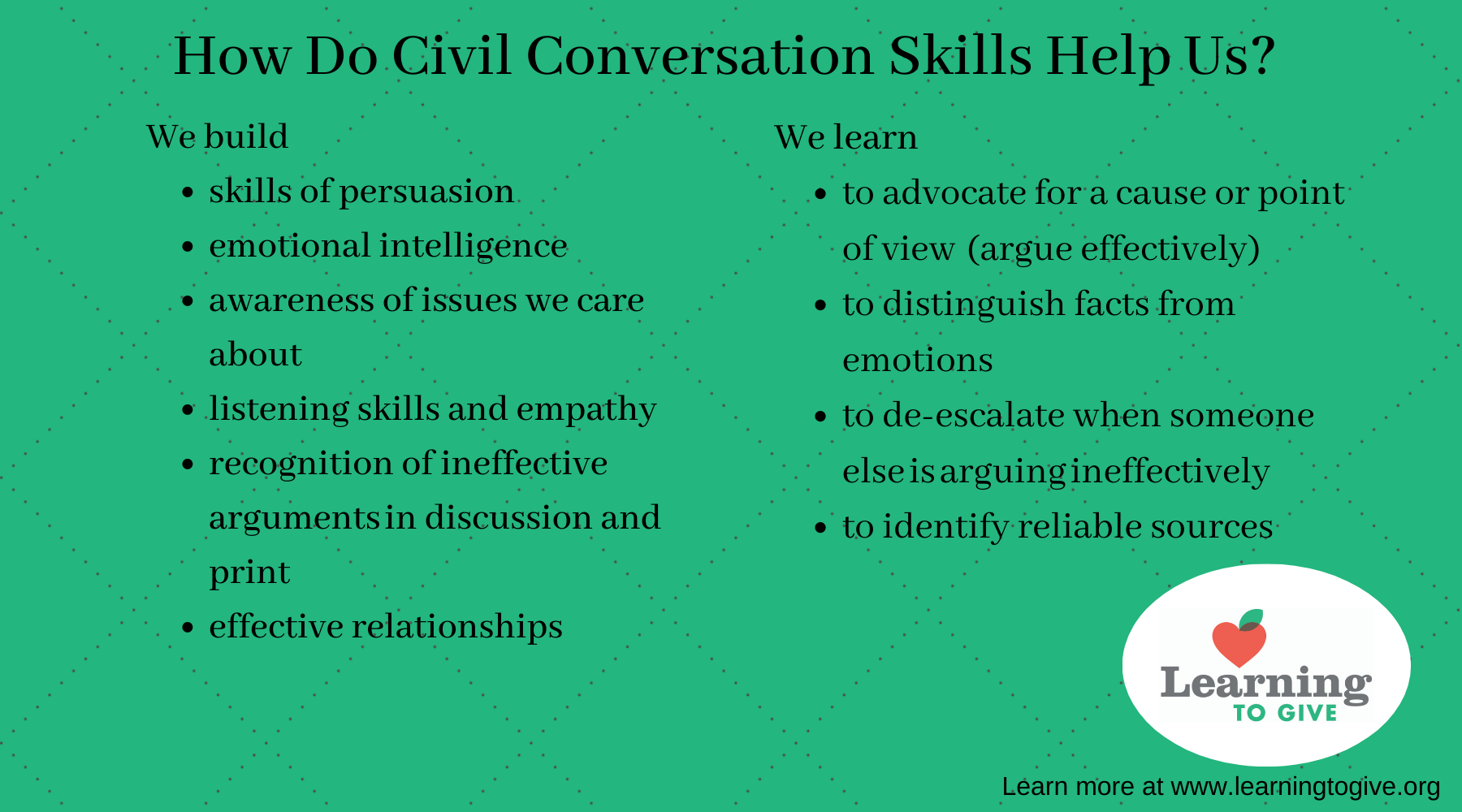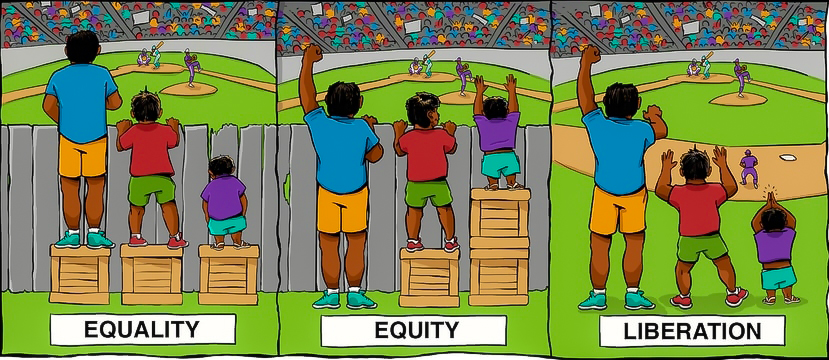Critical Conversations
Listening for Understanding in Critical Conversations
We have all been in conversations in which someone listens long enough to share their story or related event. Maybe even to top your story. That doesn't make us feel heard or understood.
When someone listens for understanding, they nod, say encouraging words, and then follow with clarifying questions. Here are some tips:
- Show respect for the person who is talking. Listening can look like nodding, restating, checking for clarification, and showing empathy.
- Be curious about their experience and perspective. Say, "Tell me more." We all want to feel heard.
- Be kind (civil) even if you disagree. Ask questions to understand their story and be open to learning. Wait for a count of ten before telling your story.
- Listen to understand before speaking to be understood.
- The person you disagree with is a person with a story, a perspective, and some things in common with you. Conflict is hard. Be brave and respectful, and know that you'll get through it.
- Recognize that we all have a history and context. Be grateful when someone reveals the things you didn't know you didn't know.
Discussing Challenging Issues
Discussing a current event may just become your best day ever. Young people of all ages have opinions and get passionate when talking about what’s in the news. These conversations can also be tricky, and facilitators can get nervous about conflict and unpredictability. This guide helps youth develop group agreements and argument skills and build a base of civic competency.
Better Arguments
The Better Arguments Project seeks to guide people to have better, not fewer, arguments.
Here are the steps to better arguments that are grounded in context and emotional intelligence:
- Take winning off the table.
- Prioritize relationships and listen passionately.
- Pay attention to context.
- Embrace vulnerability.
- Make room to transform.
Getting started
- Check whether your organization or school has written policies about teaching controversial subjects.
- Consider sending a letter to parents about the planned topic of conversation. See the sample attached below.
- Be aware of your own biases (we all have them) for culturally responsive teaching.
Set Expectations and Group Agreements
- Prepare the culture of the classroom or group first: Establish safety before engaging with tough issues by practicing teambuilding activities and teaching strategies. Since difficult conversations can engage emotions, build trust and expertise with non-controversial discussions. Deliberately teach skills of respectful disagreement, active listening, and supporting statements with evidence. More tips from the Listen First Project.
- Identify a clear purpose for entering a topic: Provide key questions and discussion objectives. Make sure students know why the topic is important to the larger group goals.
- Establish group agreements: Involve the group in developing a list of 5-7 group agreements that are clearly displayed (i.e., listen without interrupting, avoid blame, allow everyone the chance to speak, listen and speak respectfully, seek to understand before seeking to be understood, ask thoughtful questions). Provide constructive sentence starters like "Say more about...," "What makes you say that?" and "Please clarify...."
- Know your group and encourage respect for different perspectives: Raise awareness of language that is hurtful or insensitive. Be proactive about what issues set people off. Know which participants will escalate a situation without thinking and which ones won't speak up easily. This video shares an emotional vs rational argument description called the Elephant and the Rider Metaphor.
- Provide a common basis for understanding: Assign readings, watch a video, or conduct a research day to help participants become informed about the topic prior to the group discussion. Prepare yourself academically and reflect on your own biases. This guide to media literacy can raise awareness of being good consumers of information.
- Be an active facilitator: Provide the structure and give support to include everyone, then step in with a familiar strategy or redirect when there is potential harm. Establish routines that involve all participants like "turn and talk" or "write a question about something you don't understand." Be careful to maintain awareness of discussions but not to over-control. It is helpful to give the young people the responsibility to adhere to the agreed-upon group agreements and refer to them as needed. Remind them to listen carefully, repeating back, asking for clarification, and supporting with factual examples. Emotions can be strong and dominating, but a pause and redirect can bring people back to a rational frame.
-
Summarize the discussion and gather feedback: Ask youth to respond to reflection questions (i.e., What important questions remain unanswered for you?). Share stories that create hope and discuss positive actions students can take.
The above list is derived from the Guidelines for Discussing Difficult or Controversial Topics curated by the University of Michigan.
Tools and Examples of Effective Arguments
Consensus Building
Coming to a consensus is different than the principle of "majority rules." A consensus-building approach is an effort to honor the interests of all people involved and maximize the benefits to all. There aren't winners and losers, and there may be some gray areas and compromise. This activity provides some guidelines and practice ideas for building consensus.
Effective Debate Strategies and Familiar Techniques to Avoid
Mr. Salciccioli from Detroit, Michigan, provides high schoolers with definitions and effective tools for debate. He describes techniques people use that are not effective and guidelines for respectful debate.
Be Curious
The Scout Mindset is a model for civil conversations. Dr. Kait Pressnall gives simple guidance for using curiosity to keep conversations civil.
Liberation from Conflict and Barriers
Sometimes we have to find common ground with the end in mind. Even if we don't agree (or have different perspectives), we can be equal in our end goals, such as peace, good health, or personal happiness. To reach the same end goal for all, some people may need different things than others, such as a ladder or a barrier removed. In this illustration, the end goal is watching the game. Think about the end goal in any debate or conflict.



